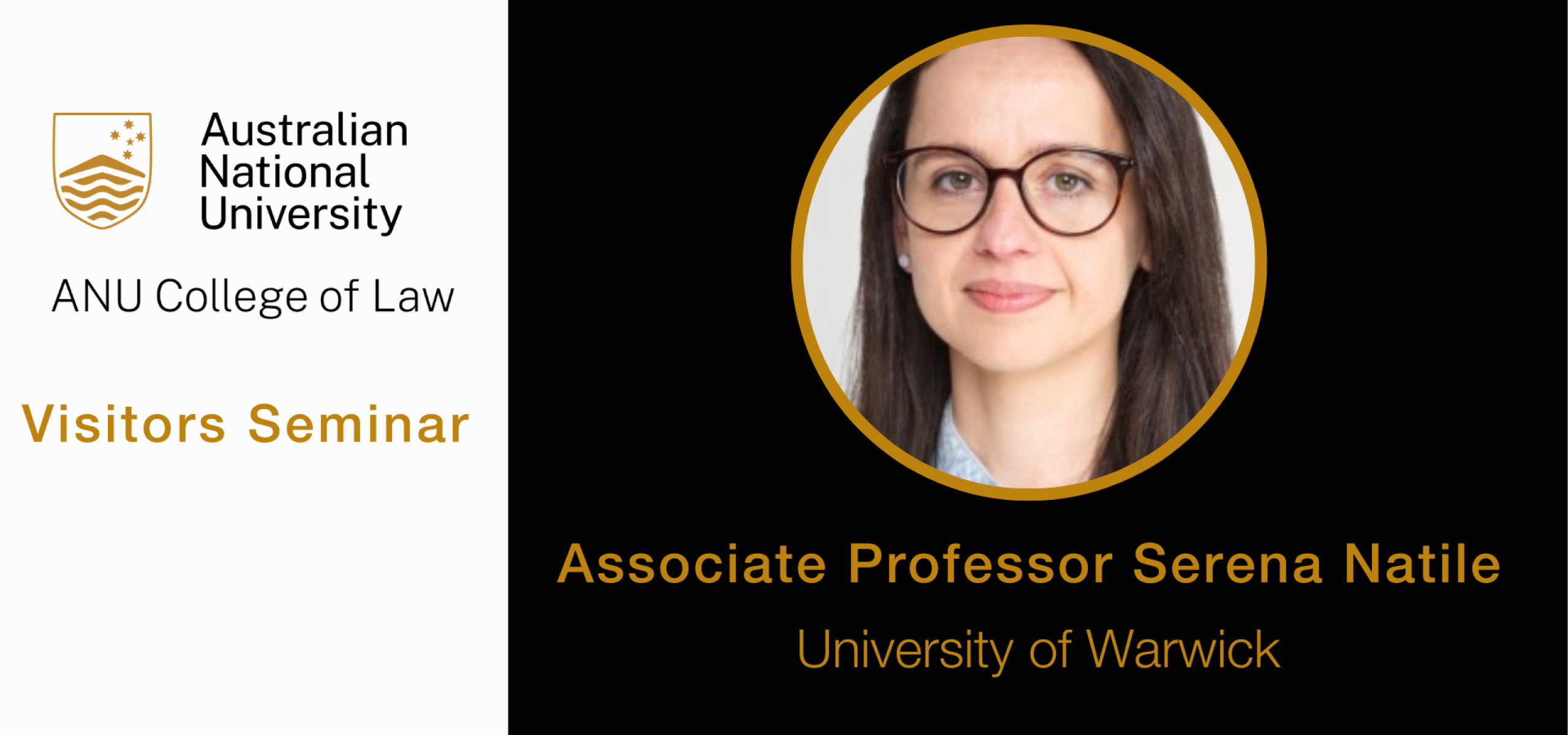
Date & time
Venue
Phillipa Weeks Library, Level 4, Building 7, ANU College of Law
Register for the event
Event description
This paper is part of my new research project Transnational Social Security Law in the Digital Age: Towards A Grassroots Politics of Redistribution, on which I will be working during my time as a Visiting Fellow at ANU. The project aims to develop a conceptual and policy framework for transnational social security law, paying critical attention to the recent digitalisation of social security programmes. The project is motivated by the urgency to address the growing global inequality and maldistribution of wealth and power enabled by the international legal order and enhanced by the rise of new technologies and the apparent inclusivity of digitalisation. The increasing promotion of private sector-provided digital technologies as a quick fix for exclusion and inequality has moved attention away from international law’s responsibility for redistributive interventions, while creating new instruments for value extraction, for instance via fees and data.
The research asks whether a grassroots-inspired framework for transnational social security law can contribute to disrupt the unjust mode of wealth and power distribution legitimised by international law and exacerbated by new technologies, and whether it can create new mechanisms for global accountability and redistribution. To answer this question the project develops a methodology that brings together a feminist political economy analysis of international economic law and a prefigurative law-making approach that relies on consultations with stakeholders including international organisations, NGOs and grassroots activists. This methodology, aimed at centering past and present grassroots calls for global redistribution, will be applied to four case studies of digitalisation of social security programmes – Brazil (Bolsa Familia), South Africa (national social assistance grants scheme), Kenya (mobile money-enabled social payments) and India (Aadhaar social cash transfers) – to illustrate the different distributive impact that these programmes could have if a transnational social security law framework was in place.
For the purpose of this seminar, I am going to focus on the conceptual underpinnings of the project and particularly on the idea of transnational redistribution, drawing on the anti-colonial demands of the 1960-70s reclaimed over the years by grassroots movements; Rosa Luxemburg’s analysis of redistribution in relation to reform, revolution, and internationalism; feminist political economy’s theorising of social reproduction; and archival research conducted at the International Labour Organisation. I will begin by tracing the international debate on social security – from the postcolonial period, throughout the different phases of the development project, to the recent digitalisation of social security and social protection programmes – before going on to illustrate how international law has enabled maldistribution and failed to facilitate just forms of redistribution. I will discuss how the difficulty to realise a collective right to social security is a consequence of the unequal distribution of wealth, power, risks and responsibilities, and how digitalisation is itself embedded in this maldistribution. I will conclude by reflecting on whether international law could serve a more revolutionary change by adopting reparative and redistributive measures that build on the anticolonial campaigns of the 1970s and on the grassroots solidarities that drew on them and have been demanding economic-social-environmental-digital justice ever since.
If you require accessibility accommodations or a visitor Personal Emergency Evacuation Plan please contact the event organiser.
Speakers

Serena Natile
Dr Serena Natile is an Associate Professor at the University of Warwick, School of Law, UK. Serena’s research and teaching interests lie in the areas of international law, feminist political economy, labour law, and digital technologies. In her work, Serena brings together socio-legal inquiry and political economy analysis to examine issues of coloniality, social reproduction and maldistribution and, more generally, the relationship between international law and social (in)justice. Serena is the author of The Exclusionary Politics of Digital Financial Inclusion: Mobile Money, Gendered Walls (Routledge, 2020) and her research projects include Feminist Recovery Plans for Covid-19 and Beyond: Learning from Grassroots Activism; Transnational Social Security Law in The Digital Age: Towards a Grassroots Politics of Redistribution; and (with Christine Schwöbel-Patel) Rosa Luxemburg & International Law.